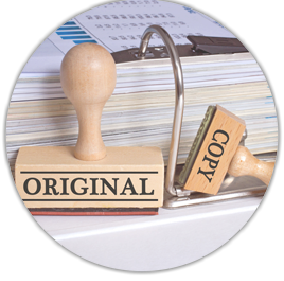
Q: Plagiarism is not just confined to students, but is also a trap for staff. What seems to be the biggest problem when it comes to staff and plagiarism?
A: A big reason for concern is the inconsistency with which some faculties handle plagiarism among students. Even though each case is handled according to merit, the processes and procedures that the NWU has in place need to be followed in a consistent manner. This means that any form of plagiarism needs to be reported to the Student Disciplinary and Compliance department and Employee Relations to ensure consistency.
The Student Disciplinary and Compliance department must be contacted in cases where students plagiarise and the Employee Relations department in cases where staff members are guilty of plagiarism.
It is also a problem if study leaders and promoters do not investigate plagiarism thoroughly. This is mainly because many lecturers and study leaders know some offenders’ difficult circumstances and decide to handle such cases internally. Protecting a guilty party is in itself dishonest. Incidentally, academic staff do not always reach consensus around the basic definition and intricacies of the manifestation of academic plagiarism. In addition, the phenomenon of plagiarism can manifest in a vast amount of ways that are open to interpretation.
We see more and more cases of self-plagiarism. This is when staff publish articles and resell the same article or parts of it to other publications. In other words self-plagiarism is when one uses your own work on other platforms without indicating that it was published previously, and then receive financial benefits from it.
Q: If it is their work, how can it then be considered plagiarism when it comes to self-plagiarism?
A: If an article has been published and parts are used without referring to the previously published article, then it is considered plagiarism even if it is the writer of that article who does it. Anything that is done by anyone as part of their work at the NWU also means that the work is not just theirs but is also the intellectual property of the university.
Q: What are the implications of self-plagiarism?
A: Because it tarnishes the image of the university and because academics must set an example to students, any form of plagiarism, including self-plagiarism, can lead to dismissal. The majority of cases that we have investigated have led to summary dismissals.
Q: How big is the problem when it comes to plagiarism in general?
A: Over the past three years there has been a worrying increase in plagiarism by students as well as staff members. We had instances where for example international academics picked up plagiarism and informed us about it. This type of conduct may affect the public image and/or integrity of the university in the outside world.
Q: What are the most used excuses when it comes to plagiarism and especially self-plagiarism?
A: Most staff members who were found guilty of this said they did not know that they could not use their own work without citing previous publications.
Q: Where must staff go to report cases of plagiarism and what aids are available to assist them?
A: The first step is to report possible plagiarism to People and Culture's Employee Relations department, who will then submit the alleged plagiarism complaint to the office of the institutional registrar, Prof Marlene Verhoef. She will refer it to the vice-rector for academic on the relevant campus to investigate.
To report alleged plagiarism by a student, you can also contact the following employees on each of the campuses:
- Tshepi Molemane (Mafikeng Campus) at X89 2175
- Juanita de Kock (Potchefstroom Campus) at X99 1915
- Collin Ntuleni (Vaal Triangle Campus) at X10 3295
Staff and students can contact the student discipline departments and the writing laboratories for guidance and help on Turnitin reports and plagiarism training.
SCROLL DOWN